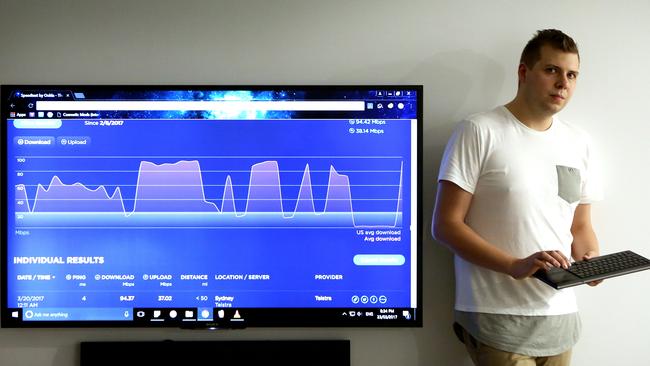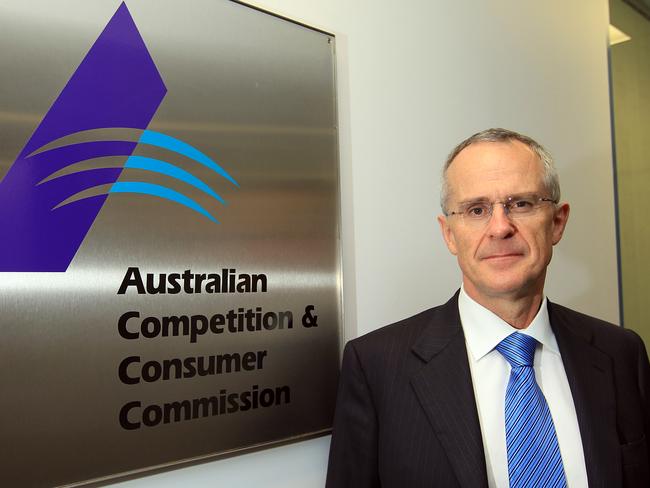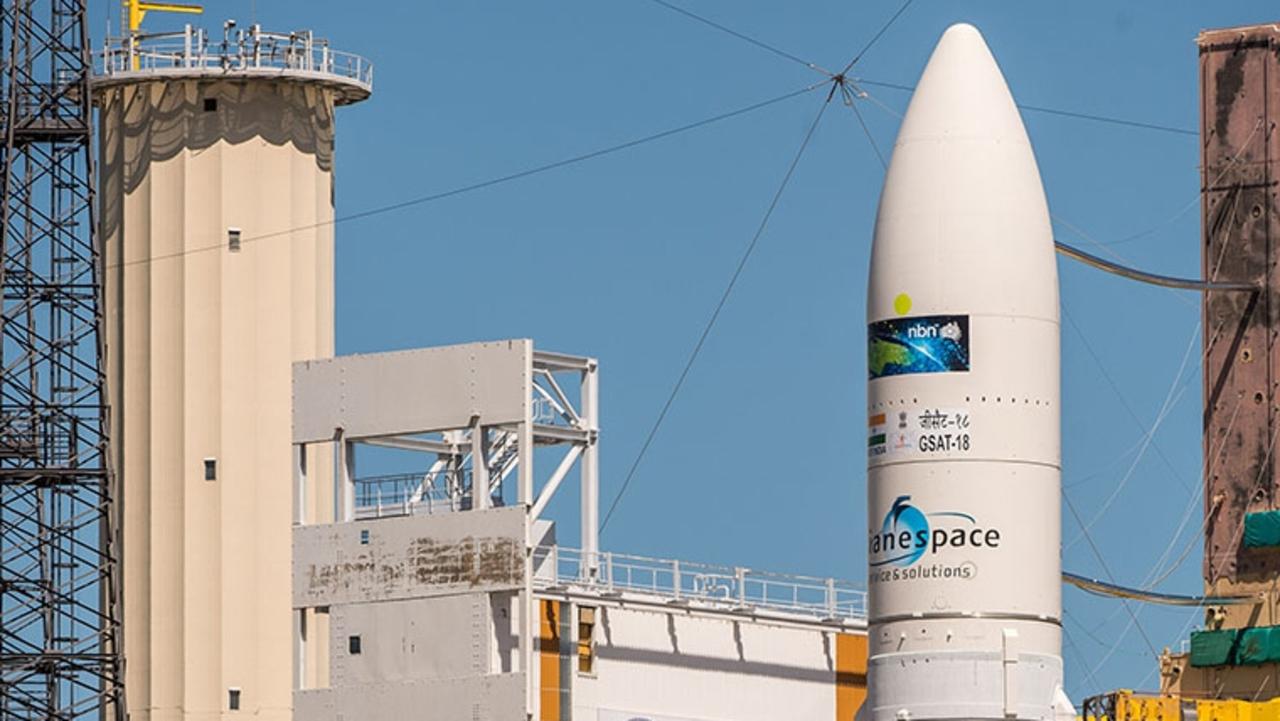ACCC to find out how fast the NBN really is, and why your speeds may be sluggish
A NEW government-funded program has vowed to find out how fast the NBN really is, and why your speeds may be sluggish.

THE government has announced the launch of a new program to monitor the performance of people’s home broadband to give customers a greater ability to compare fixed-line internet service providers.
The Australian Competition and Consumer Commission said on Friday it has been given extra federal funding for a program to remotely test about 4000 households and determine typical speeds on fixed-line NBN services at different times of the day.
The idea is that the Broadband Performance Monitoring and Reporting (BPMR) program will give Australians an easier way to understand and compare speeds and see whether they are getting the level of performance promised by retailers.
“Performance information will be made publicly available for the benefit of all Australians,” said a statement from the office of Communication Minister Mitch Fifield.
ACCC Chairman Rod Sims added: “This information will assist consumers in comparing and shopping around, and checking that they receive what they are paying for.”
“The program will also allow the ACCC to determine if issues are being caused by the performance of the NBN, or by internet service providers (ISPs) not buying sufficient capacity.”
A number of customers have complained about receiving dismal speeds, particularly at peak times, after switching to the NBN. As Mr Sims points out, sometimes this is actually the fault of the ISP (not the NBN wholesaler) for effectively failing to purchase enough traffic space on the network.
The pricing structure of the NBN has proved to be a sticking point for the industry leading to a long running finger-pointing battle between NBN Co and ISPs such as Telstra, Optus, TPG and Macquarie Telecom.

The handling of the nationwide rollout has also frustrated much smaller telcos. The Chief Information Officer of Sydney-based broadband provider Fibre Corp Joel Clarke said his company supports the initiative. But he also took the opportunity to attack the government and the handling of the National Broadband Network rollout for marginalising smaller players.
“The need for such programs has escalated since the failed deployment of NBN Co’s underperforming “super-fast” national broadband network,” he said.
“The fundamental reason fuelling the poor levels of service across the current NBN is the commercial model that was designed in collaboration with the major telcos to reduce competition and provide an unfair playing field to smaller ISPs.”
Plenty of other small-time internet service providers have previously voiced their frustration about how certain decisions made during the rollout have made it harder for them to compete.
Acting Shadow Minister for Communications Mark Dreyfus was also quick to lay the boot in following the announcement, reigniting a bitterly partisan battle over technology preference.
“Despite its value, a monitoring program won’t solve the structural problem — a $50 billion price tag to deliver a second-rate NBN that relies on last century’s copper,” he said.
“There isn’t a monitoring program in the world that can unwind that scale of a mess.”
Telecom giant Telstra is the nation’s biggest fixed-broadband provider, followed by TPG and Optus.
Mobile operators Vodafone and Amaysim plan to offer a fixed broadband service over NBN later this year.
Mr Sims, who last month promised that telcos would come under particular scrutiny this year, said consumers need access to accurate information to help them choose plans.
“This improved transparency will help these consumers exercise choice as next generation services are rolled out, including on the NBN,” he said.
The ACCC will receive about $7 million over four years for the program after a successful three-month pilot in 2015.
Participation will involve the installation of a small device on home internet connections which will provide real time data on the performance of the NBN fixed-line broadband service.
The program will be similar to those in the UK, US, Singapore and Canada.
— With AAP





